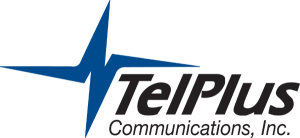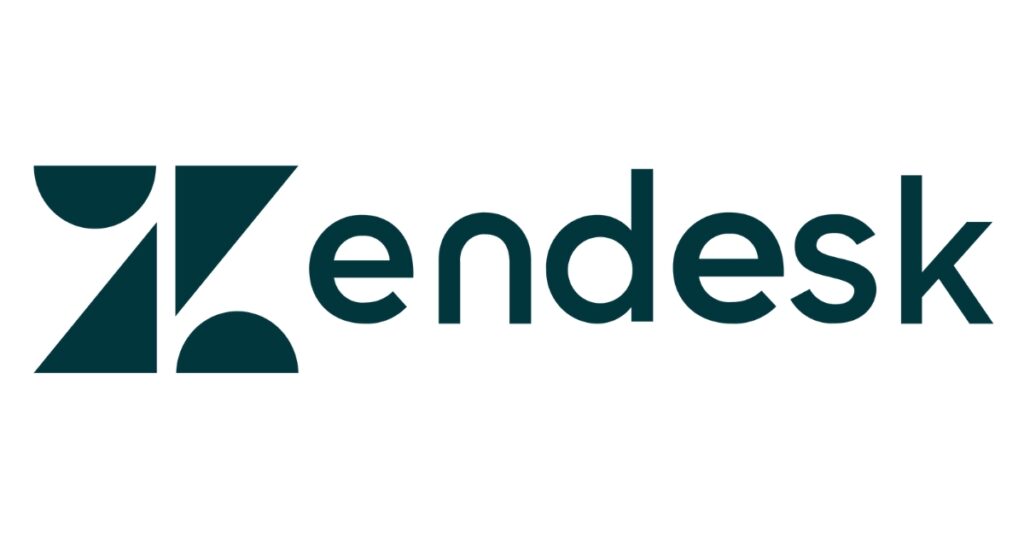What is Zendesk? CRM & Support For Modern Businesses
Table of Contents
When customers need help, they expect fast, straightforward answers, whether they reach out by email, chat, phone, or social media. For many businesses, that’s where things start to break down. Messages come in from multiple places, teams juggle different tools, and essential conversations slip through the cracks.
Zendesk is designed to solve that problem. It’s a cloud-based customer service and CRM platform that helps businesses manage support requests, conversations, and customer data in one place. If you’ve been searching “what is Zendesk” to understand whether it’s a fit for your business, this guide will walk you through what it is, how it works, and why so many companies rely on it to run their support operations.
What Is Zendesk?
Zendesk is a customer service and support platform that brings together all your customer interactions into a single, organized system. At its core, it’s built around a ticketing system that turns each customer issue, whether it comes in via email, chat, web form, social media, or phone, into a trackable ticket. This allows your team to assign, prioritize, and resolve customer requests in a consistent, documented way.
Beyond ticketing, Zendesk CRM capabilities let you store and view customer information alongside their interaction history. That means your team can see who the customer is, what they’ve purchased, and any past support issues while responding to new requests. This context makes it easier to provide helpful, personalized support instead of one-size-fits-all responses.
Zendesk also includes self-service tools like help centers and knowledge bases, so customers can find answers on their own when they don’t want to contact support directly. Combined with automation and AI features, Zendesk gives businesses of all sizes a complete toolkit for building a professional, scalable customer support operation.
How Zendesk Works
To understand why Zendesk is so widely adopted, it helps to break down how it actually works inside a typical business.
When a customer reaches out by emailing your support address or filling out a form on your website, Zendesk automatically creates a ticket. That ticket can be assigned to an agent, grouped with similar issues, prioritized, and tracked through to resolution. If the same customer reaches out again, the history is linked, so your team never has to start from scratch.
Zendesk supports multiple channels out of the box, including:
Email support
Web and in-app chat
Phone/voice support
Social channels like Facebook and Twitter
Web forms and embedded widgets
All of these channels feed into a single agent workspace, so your team doesn’t have to jump between tools. Automation rules can route tickets to the right team, apply tags, trigger notifications, or send automatic replies. AI options can suggest responses or help classify tickets, further reducing manual workload.
On top of that, Zendesk integrates with other business tools, CRMs, e-commerce platforms, project management systems, and more, so that support operations stay connected with the rest of your tech stack.
Key Features of Zendesk
While Zendesk has a wide range of capabilities, there are a few core features that most businesses rely on every day.
Omnichannel Support – Zendesk brings email, chat, phone, and social messages into one unified platform. Customers can contact you on the channel they prefer, and your agents can respond from a single interface without losing context or switching tools.
Powerful Ticketing System – Every request becomes a ticket that can be assigned, categorized, and prioritized. This makes it easy to manage workloads, avoid missed messages, and ensure that each customer issue is tracked from start to finish.
Zendesk CRM Capabilities – Zendesk CRM features let you store customer details, view interaction history, and keep important context in one place. As agents respond to tickets, they can see who they’re helping, what products or services they use, and what issues they’ve had in the past.
Self-Service Help Center & Knowledge Base – Zendesk includes tools to build a public help center where customers can search for answers, browse FAQs, and read documentation. This reduces the volume of simple tickets, allowing your team to focus on more complex issues.
Automation & AI – Automation rules can handle repetitive tasks like routing, tagging, and sending standard replies. AI can suggest responses, help categorize requests, and surface relevant articles for both agents and customers, making support faster and more efficient.
Reporting & Analytics – Zendesk provides dashboards and reports that show response times, ticket volume, customer satisfaction, and agent performance. This data helps you understand how your support operation is performing and where you can improve.
Integrations & App Marketplace – Zendesk connects with hundreds of other tools, from CRMs and e-commerce platforms to project management apps, through its marketplace. This allows you to tailor Zendesk to your specific workflows and keep your systems in sync.
Common Use Cases for Zendesk
One reason Zendesk is so popular is that it works well for many types of organizations. Here are a few everyday use cases:
Customer Support for Online Businesses – E-commerce stores and SaaS companies use Zendesk to manage customer questions about orders, subscriptions, billing, or account access. By keeping everything in one system, they can respond quickly and keep customers informed.
Internal IT or HR Helpdesks – Some companies use Zendesk internally to handle employee requests. IT teams might use it to track hardware, software, or access issues, while HR teams can manage questions about benefits, policies, or onboarding.
Growing Small Businesses – Smaller companies often start with a shared email inbox, but as they grow, that system quickly becomes chaotic. Zendesk gives them structure, visibility, and tracking so they can maintain high-quality support as they scale.
Enterprise-Level Support Operations – Larger organizations use Zendesk to coordinate support across multiple teams, regions, or brands. Features like advanced routing, custom roles, and detailed reporting support more complex environments.
In each of these scenarios, the common thread is that Zendesk helps centralize communication, standardize processes, and maintain visibility across all support activities.
Benefits of Using Zendesk for Your Business
For business owners evaluating support platforms, the key question isn’t just “what is Zendesk?” but “how will Zendesk actually help my business?” Here are some of the major benefits:
Faster Response Times – With all customer messages flowing into one system and automation helping route tickets, your team can respond more quickly and efficiently. Customers spend less time waiting, and issues get resolved sooner.
More Consistent Support – Using a structured ticketing system means customers get more consistent treatment. Standard macros, workflows, and knowledge bases help ensure customers receive accurate, aligned information no matter which agent they talk to.
Better Visibility & Reporting – Zendesk’s reporting tools let you track metrics like first response time, resolution time, and satisfaction scores. This helps you identify bottlenecks, set realistic goals, and make informed decisions about staffing and process improvements.
Scalability – As your business grows, so does your support volume. Zendesk is designed to scale with you, whether you’re adding more agents, additional brands, or new languages. You don’t have to rebuild your support operation from scratch as you expand.
Improved Customer Experience – When customers can reach you on their preferred channel, get quick responses, and see consistent answers, their overall experience improves. This leads to higher satisfaction, stronger loyalty, and better word-of-mouth.
Zendesk Pricing: What Business Owners Should Know
If you’ve been searching for Zendesk pricing, you’ve probably noticed that there are different plans and add-ons available. Zendesk typically structures its pricing based on:
The number of agents using the platform
The level of features and automation you need
Whether you’re using Zendesk primarily for support, for CRM, or for a combination of both
Rather than focusing on specific dollar amounts, it’s more helpful to think about which features you actually need. For a small business, that might mean a core support plan with basic ticketing and email support. For a larger company, it might include advanced routing, multiple channels, AI tools, and deeper CRM capabilities.
Because the right plan depends on your team size, channels, and use cases, many businesses find it helpful to work with a partner who understands both Zendesk pricing and implementation. That’s where TelPlus can step in. We will help guide you toward a plan that works best for your business and offer strategies to best implement the software.
Get Started With Zendesk Through TelPlus Communications
If you’re evaluating Zendesk for your business, it’s helpful to move beyond “what is Zendesk” and start thinking about how it will fit into your specific workflows. Choosing the right plan, setting up the system, and connecting it to your existing tools can make the difference between a smooth rollout and a frustrating experience.
TelPlus Communications can help you:
Evaluate whether Zendesk is the right fit for your business
Understand Zendesk pricing and choose the right plan
Configure your ticketing, channels, and automations
Integrate Zendesk with your existing systems
Train your team so they can use Zendesk effectively from day one
If you’re ready to explore Zendesk as your support and CRM platform, reach out to TelPlus Communications for a complimentary assessment and guidance on getting started.
FAQ About Zendesk CRM & Customer Support
Zendesk is used to manage customer support and service operations. It centralizes customer requests from multiple channels, like email, chat, and phone, into a single system, making it easier for teams to track and resolve issues.
Zendesk includes CRM-style features, such as storing customer information and interaction history. For many businesses, Zendesk CRM capabilities are enough to manage support-related customer data, though some organizations still use a separate CRM for sales and marketing.
Zendesk pricing varies depending on the plan, features, and number of agents you need. Instead of focusing on a single price, it’s more useful to consider your support channels, automation needs, and team size, then choose a plan that matches those requirements.
Yes. Many small and mid-sized businesses use Zendesk because it’s easy to start with core features and scale up as they grow. It provides structure and visibility that shared inboxes and ad hoc systems can’t match.
Zendesk stands out for its mature ticketing system, strong omnichannel support, built-in reporting, and flexible integration options. It’s designed to work for both small teams and large, complex support organizations.

